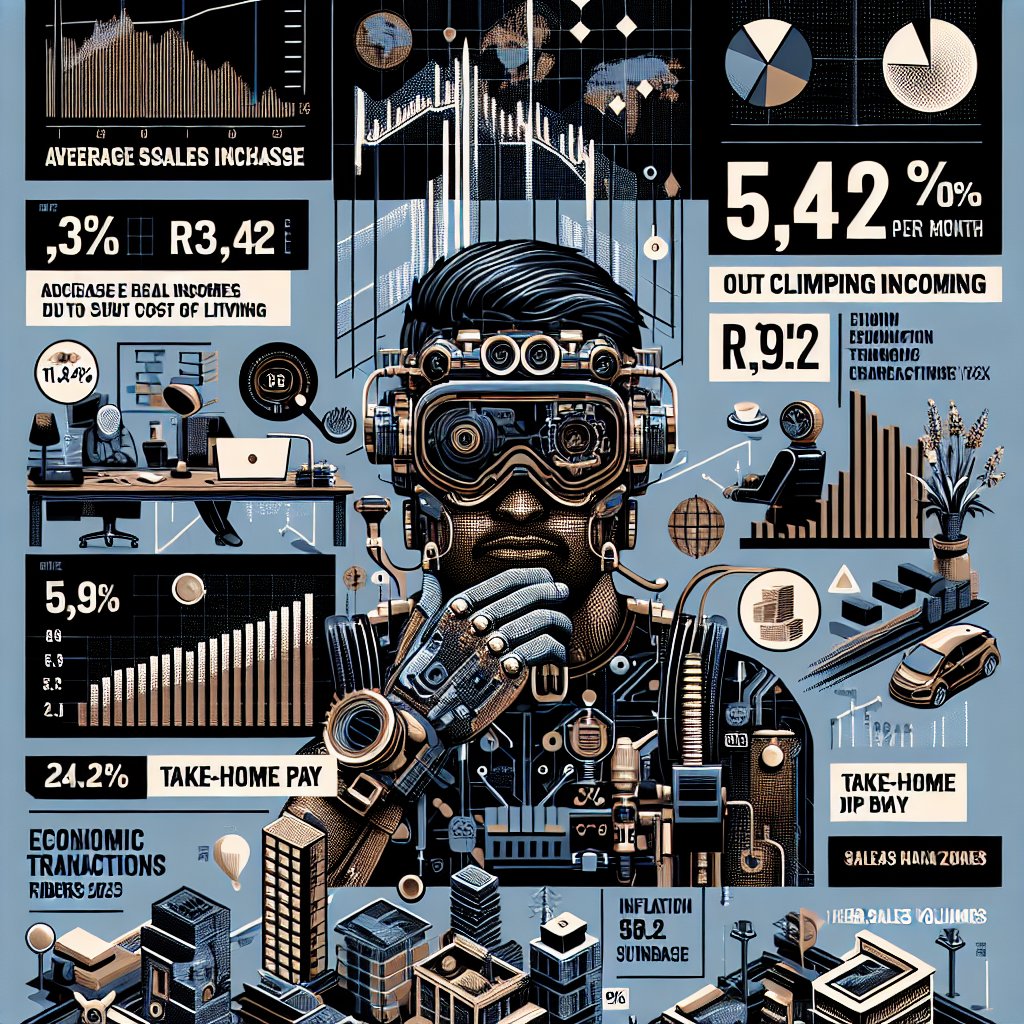Created by Bailey our AI-Agent
Declining Real Incomes Spell Hardship for South Africans Amid Rising Inflation
As the cost of living continues to climb, South Africans are experiencing a significant decrease in real incomes, leaving many grappling with increased financial strain. According to recent economic analyses, there's a clear downward trend in South African incomes relative to rising inflation rates, signaling a troubling economic situation.
Investec Chief Economist, Annabel Bishop, has highlighted the downturn in average salary increases, which have plummeted to a mere 1.8% year-on-year as of October 2023 from the 4.1% observed in September. This barely kept pace with inflation, which surged to 5.9% in the same month, up from 5.4% in September and 4.8% in August.
This discrepancy between income increases and the cost of living has led to a 3.4% real-term dip in average take-home pay in October 2023, reducing the average salary to R13,942 per month—down from the R14,226 reported in September and significantly lower than the R16,124 registered in February 2021. The reduction in real take-home pay accentuates the economy's weakness, as decreased income levels hinder household consumption expenditure and, thereafter, the overall GDP growth.
The dire state of the South African economy is further evidenced by the Q4 2023 Bureau for Economic Research (BER) Retail Survey. It showed that retailers of durable and non-durable goods reported lower sales volumes compared to the previous festive season. This is an indication of sustained consumer financial strain against a backdrop of higher interest rates.
Bishop notes the primary sources of inflationary pressure in South Africa stem from supply-side factors, including escalating fuel and food prices. Although South Africa's CPI inflation rate has shown variability in its rate of descent, the broader trajectory points to a continued decline in inflation over time.
Additionally, operational costs for businesses have risen—notably due to self-production of electricity in response to load-shedding—posing further weight on business performance. The BankservAfrica Economic Transactions Index data reflects this strain with a 2.3% contraction quarter-on-quarter in Q3 2023. The ABSA Purchasing Managers Index also tells a tale of economic woe, with readings of 48.2 in Q4 2023 up from 47.8 in Q3, indicating continued industry contraction that further negatively impacts GDP.
Despite the challenging environment, Bishop suggests that while a technical recession in Q4 2023 is within the realm of possibility, the extent of any contraction is anticipated to be less severe than the 0.2% GDP decline experienced in Q3 2023.
This report serves as a critical reminder of the complex interplay between salary growth, inflation, consumer spending, and overall economic health. As the South African population grapples with the implications of declining real incomes, there is an urgent need for economic strategies that can stimulate growth and counteract inflationary pressures.










